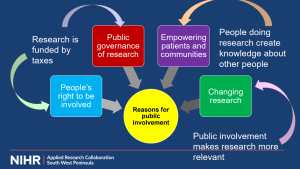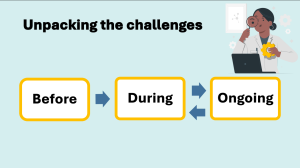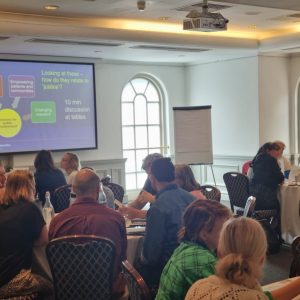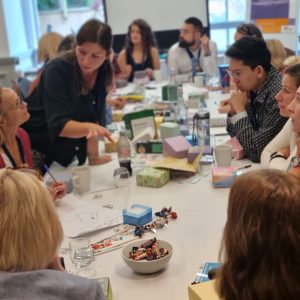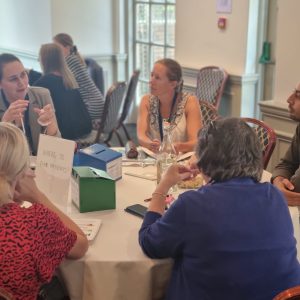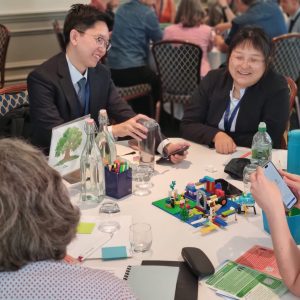In July 2025, a diverse group of researchers, students, facilitators, and public contributors came together for something a little different: a week of shared learning focused on how to make health and care research more inclusive, relevant, and meaningful.
Why a Summer School on PPIE?
Because this kind of involvement in research is growing in importance, and with good reason.
When patients, carers and members of the public are included as equal partners in the research process, it makes the work more grounded, more useful, and often fairer. People with lived experience can bring valuable insights, ask better questions, and highlight issues that researchers might not see on their own.
But while the idea of PPIE is simple, doing it well isn’t always easy.
That’s where this summer school came in: a space where people could come together to explore the values behind public involvement, talk honestly about what works (and what doesn’t), and develop practical tools for improving their own practice.
Who Was It For?
This wasn’t just for experts. The summer school was designed for anyone working in health or care research, whether you’re just starting out as a PhD student or have years of experience coordinating involvement activities. It was also open to people not currently involving the public in their work but curious to learn how.
Attendees came from a range of backgrounds across health, medicine, social care, and public health. Some even travelled from as far away as Brazil and Hong Kong to be there!
A Space for Honest Learning
What made this course so special was how it was designed and delivered. Academics and public contributors worked together to create a programme where everyone, no matter their background, could share, reflect, and grow.
The goal? To go beyond the usual “tick-box” approach to PPIE and instead ask bigger questions:
- What do fairness and justice look like in research?
- What happens when public involvement doesn’t go well?
- How can we create spaces for real collaboration?
Highlights from the Programme
Understanding “Knowledge Justice”
Led by Kristin Liabo, this session helped participants explore the idea of epistemic justice, a way of saying that everyone’s knowledge and experiences deserve to be recognised and valued.
We often assume that researchers hold all the “right” knowledge. But what happens when we bring in other kinds of expertise, like the lived experience of being a patient, carer, or service user?
This session encouraged everyone to reflect on how research can sometimes unintentionally exclude these voices and how we can plan for more inclusive, fairer involvement.
When Public Involvement Feels Difficult
In a powerful session by Kate Boddy and Mary Fredlund, we heard honest reflections about what happens when public involvement in research doesn’t go as planned.
Sometimes, public contributors face challenges, perhaps feeling unheard, frustrated, or unsure of their role. But rather than avoiding these tricky moments, the session encouraged participants to lean into them. Understanding these challenges can help both researchers and contributors improve how they work together and ultimately lead to stronger, more impactful research.
What People Said
The feedback from attendees speaks for itself. People left feeling inspired, challenged, and in many cases transformed in how they think about their work.
“This was one of the best learning events I have attended. It was really easy to engage with and every session was set up in a way that ensured understanding.”
“It was extremely inspiring and left me with lots of ideas about my PPIE/research work.”
“I would definitely recommend the Summer School to others. It has given me new tools and confidence and reminded me to have fun with my work.”
“It filled me with joy! I felt really energised and inspired, but it also gave me space to be reflective about my practice and why the hell I’m doing what I do!”
Final Thoughts
At its best, PPIE isn’t about ticking boxes or following rules. It’s about building meaningful partnerships and doing research that respects, reflects, and responds to the real lives of the people it’s meant to support.
This summer school gave us a rare chance to explore what that really means, both in theory and in practice. Whether you’re already deep into PPIE or just starting out, one thing’s clear: when researchers and the public learn together, amazing things can happen.

